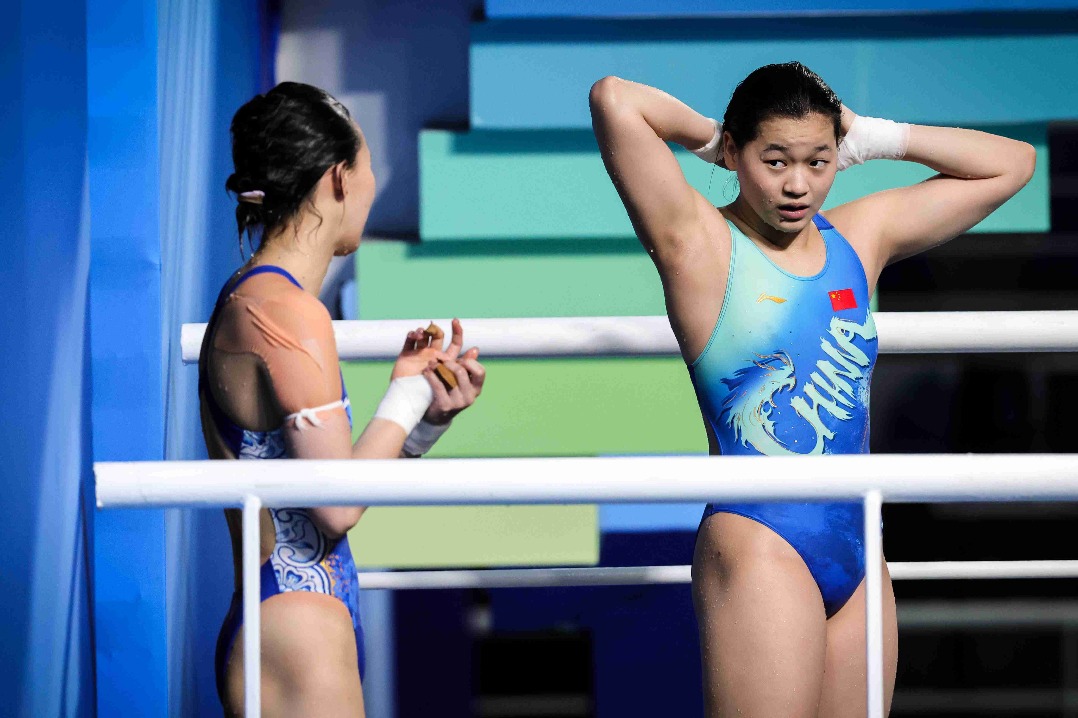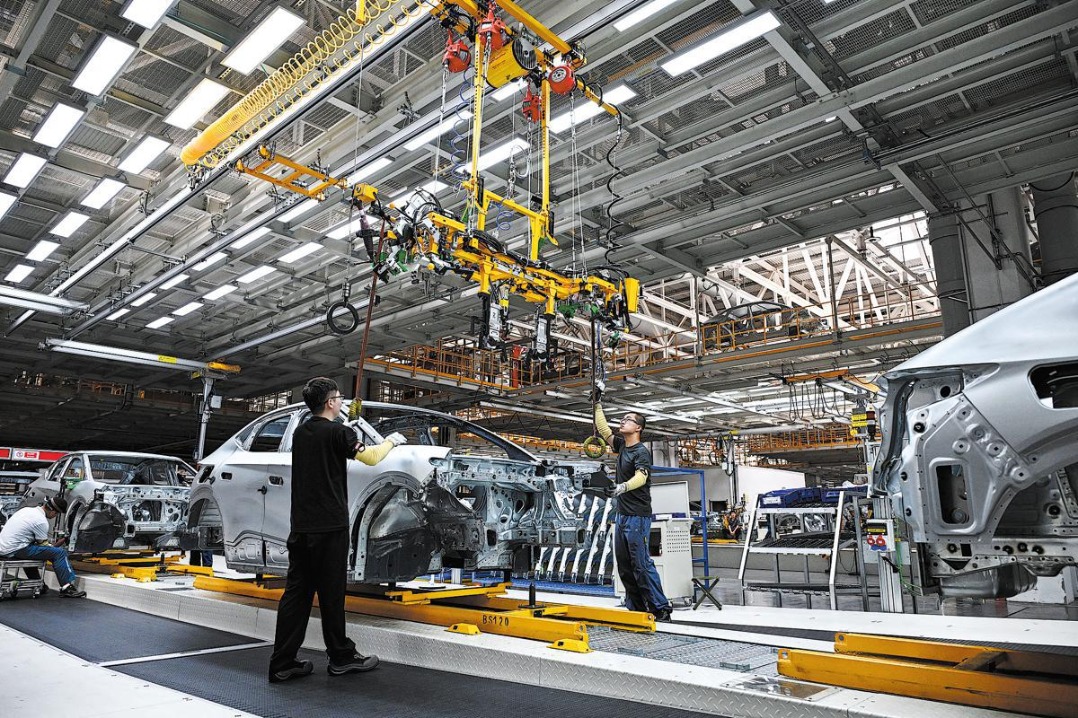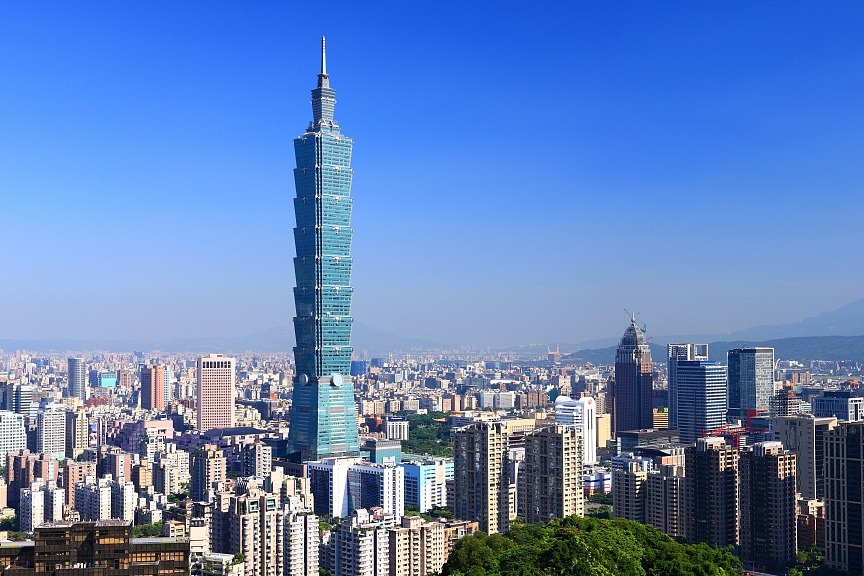Bite the bullet


Ukraine crisis has brought home to Europe that it cannot rely on the US and must pursue greater autonomy
People often ask me: How does Europe — or more precisely, the European Union — view the profound transformations taking place in today's world? And inevitably, this is followed by a second question: How is Europe preparing to respond to these changes? I shall begin by answering these two questions and then turn to a related one: What does Europe's worldview mean for great power relations, including its ties with China?
Since the outbreak of the Ukraine crisis in February 2022 and, more recently, Donald Trump's re-election as president of the United States, European leaders have issued numerous statements regarding global shifts. In fact, this debate is not limited to political circles — strategic thinkers and policy analysts across Europe have actively contributed to the discourse on how Europe perceives these changes and how it should respond.
Let us first look at how Europe understands the world's transformation. There is a growing consensus across Europe that the current international order is either in decline or has already come to an end — though opinions differ as to which order is being dismantled. Some believe we are witnessing the greatest transformation in three decades, signaling the collapse of the post-Cold War order. Others speak of an 80-year rupture, marking the erosion of the international system that emerged after World War II. Still others view this as a 300-or even 500-year shift, implying the end of Western, and particularly European, dominance of global affairs.
Despite varying interpretations of what constitutes the "old order", Europeans broadly agree on the trajectory of change. In the eyes of many, multipolarity is now inevitable and is set to define the new world order. This view was clearly reflected in the February 2025 Munich Security Report, which stated plainly: "We already live in a world shaped by 'multipolarization'." The report emphasized that multipolarity is not only about the redistribution of power among more global actors but also about increasing fragmentation both between and within states. This perspective diverges sharply from that of many people in the US, who continue to resist the notion of an emerging multipolar world. Europeans, by contrast, accept multipolarity as an unavoidable reality — yet they tend to view its consequences with pessimism. In their eyes, multipolarity weakens multilateralism and introduces greater disorder into global affairs. The Munich Security Report, for instance, predicted that in a world undergoing "multipolarization", growing numbers of states will compete for influence, and the future of the international order could be "much more chaotic".
In this context, Europe finds itself caught between dissatisfaction with the US' renewed unilateralism and deep ambivalence about the direction of multipolarity, particularly as promoted by China and other rising powers. Multipolarity, then, is something Europe must face, but not without anxiety. So how does it plan to respond?
On May 29, European Commission President Ursula von der Leyen, in her speech at the award of ceremony of the International Charlemagne Prize of Aachen, declared: "A new international order will emerge in this decade. If we do not want to simply accept the consequences this will have for Europe and the world, we must shape this new order. History does not forgive either dithering or delaying. Our mission is European independence." Clearly, what she envisions as "shaping the new order" means achieving European autonomy.
This year marks the 80th anniversary of the end of World War II, during which European integration has been a defining theme of the continent's development. Initially confined to Western Europe, integration expanded eastward after the Cold War, and today, nearly all European states are part of the integration project. Integration has long been associated with peace and prosperity. However, since the onset of the Ukraine crisis — especially with the shift in US policy toward Europe — strategic autonomy has become the new guiding theme for Europe's future.
Integration and autonomy are not mutually exclusive; on the contrary, they are closely linked. Further integration can serve as a foundation for greater autonomy. Yet their goals differ: integration seeks peace and prosperity, while autonomy aims at achieving strategic independence.
From an identity perspective, Europe is undergoing a profound repositioning: moving away from its traditional self-image as a "soft power", a "normative actor" and a "civilian power" toward becoming a geopolitical force, a military actor and a provider of security.
Strategically, Europe is now pursuing three major transformations. In energy, Europe seeks to reduce its dependence on Russian energy through diversification, thereby advancing its autonomy. In defense, Europe is rearming to prepare for a "post-American world" and reducing its reliance on US military protection. Though initially controversial (with Italy and Spain concerned about militaristic overtones), the initiative reflects a broader effort at defense readiness. In the economy, particularly in relation to China, Europe seeks to rebalance its economy through so-called "de-risking", with one of the aims set out in the European Economic Security Strategy, launched in June 2023, being to reduce overdependence on China for critical raw materials.
Whether in energy, defense or the economy, the underlying theme of these transformations is greater autonomy — the very independence Von der Leyen called for. This, in essence, is Europe's strategy for coping with a rapidly changing world. While the goal of strategic autonomy is now firmly set, whether it can be achieved remains uncertain.
As Europe moves toward greater autonomy, its relations with other major powers will become increasingly complex — a fact that China must pay close attention to. Trump's return to power has severely damaged transatlantic strategic and political trust. Even after Trump, EU-US ties may improve only moderately. Over time, as Europe builds its own defense capabilities, NATO's relevance may decline, and the post-World War II transatlantic alliance could further weaken. For now, Europe is working hard to accommodate the Trump administration, hoping to retain US engagement for as long as possible. But in the long run, Europe no longer harbors illusions about the permanence of US security guarantees.
Tensions between Europe and Russia are expected to persist for the foreseeable future. Europe perceives Russia as a direct threat to its survival. Even if the US halts its support for Ukraine, Europe is unlikely to change its commitment to aiding Kyiv and countering Moscow. The European push for military readiness is largely motivated by its perception of the Russian threat.
Meanwhile, China-EU relations are growing in importance — not only economically, but also in terms of shared responsibility for global stability and preserving multilateralism. The competitive dimension of the relationship is intensifying, a reality that subjective wishes cannot reverse. Still, there remains considerable room for cooperation. On trade, climate action and resisting unilateralism, China and Europe share common interests. The two sides should work together to manage frictions, prevent escalation, and promote stable bilateral relations.
The author is director of the Institute of European Studies at the Chinese academy of Social Sciences. The author contributed this article to China Watch, a think tank powered by China Daily. The views do not necessarily reflect those of China Daily.
Contact the editor at editor@chinawatch.cn.


































